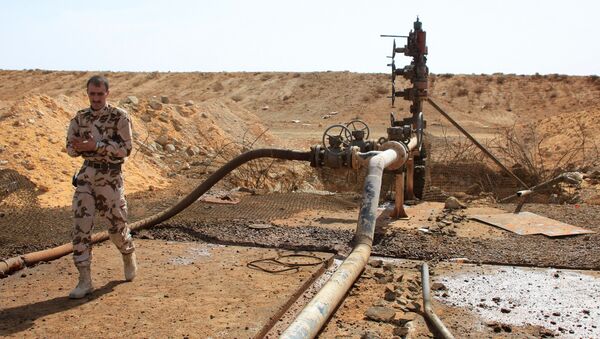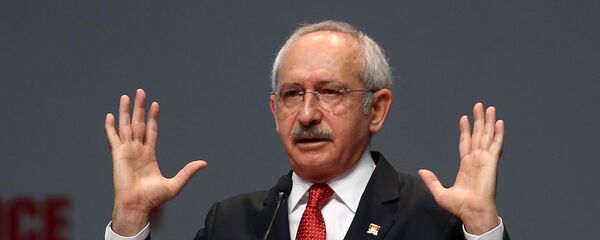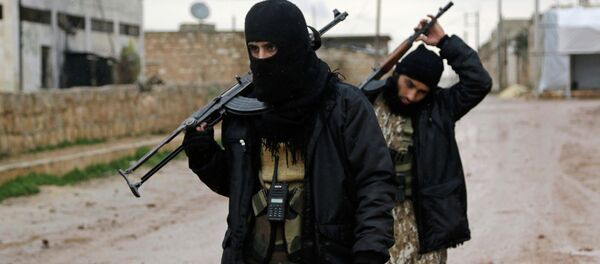US-led airstrikes on the Islamic State in Iraq and Syria were ineffective and even allowed the organization to continue to spread its influence, using oil money to finance its expansion into Syria, Middle East expert Hafsa Kara-Mustapha told Radio Sputnik.
In Iraq, ISIL was able to capitalize on the state infrastructure for oil production which was abandoned as a result of the invasion of the country in 2003, the spoils of which it used to finance more equipment and fighters.
"It's free oil for them so they're selling it at whatever price which is convenient for them, and of course any price, any money that is generated is basically free money," since the oil sales are carried out in the unregulated black market, the expert explained.
"They are basically running a mini oil industry thanks to very unscrupulous middlemen, who are benefitting from cheap oil and all this volatility in which they're buying very cheap oil, reselling at sky-high prices, making a profit and at the same time encouraging the terrorist organization to flourish."
"In the chaos of the war, very few people are willing to go and police it correctly, which makes ISIS's work much easier."
Cutting the sources of the Islamic State's wealth is crucial to bringing peace to the region, said Kara-Mustapha, since then the organization will not be able to fund the equipment or soldiers needed to fight.
"In essence if you remove the funds, you are actually cutting off, slowly but surely, all the limbs of ISIS. Perhaps not the head, and it’s a slow process, but you are considerably weakening it."
In addition to oil money, smaller, regional cells of the Islamic State also finance their operations through ransom money raised by kidnappings, while US aid to rebel groups is also likely to have ended up funding jihadist militancy, said Kara-Mustapha.
The Islamic State also uses its connection with human traffickers in the region to make money, explained Kara-Mustapha, by demanding protection money from the traffickers.
"The people smugglers are demanding huge amounts of money, if you say on average that each person has to fork out something like $5000, and if you look at the numbers of people who are fleeing the region, I think it's fair to say that that in itself generates enormous amounts of money."
"If you add the money generated from the parallel oil industry and the people trafficking, you have an organization that has a very impressive budget to play around with," said the expert, highlighting the need for greater control over sea crossings in order to stem the human trafficking industry.




